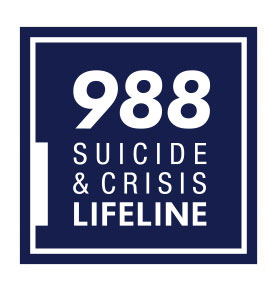Since 1849, the mission of LifeBridge Community Services (formerly known as FSW Inc.) has been to help the poorest and most vulnerable members of the Greater Bridgeport community. We began with the humble ambition of helping small groups, first widows, and later orphans, who had nowhere else to turn. As the needs of the community have changed, our goal then, as it is now, was to help inspire people in crisis and empower them to become self-sufficient.
Following the Civil War, Bridgeport’s economy and population exploded as new railroad and shipping connections, innovations in industry, and the rise of manufacturing helped turn the region in to one of America’s first “creative economies.” With abundant transportation, a strong business, banking, and manufacturing community, Bridgeport became a haven for European immigrants and African Americans migrating from the south in search of employment.
By the 1920’s, Bridgeport’s population had more than doubled, with its factories thriving from the production of goods to fill war contracts. By the 1930’s Bridgeport was the region’s industrial center with successful businesses that included Bridgeport Brass, Singer Sewing Machine, and Warner Brothers Corsets.
Our history is long, but through it all, LifeBridge has emerged as a leader
among social service agencies.
But Bridgeport’s assets became a liability. Its large populace, dependent on manufacturing, made Bridgeport especially vulnerable to the crippling effects of the Great Depression. Jobs were scarce and as many workers struggled to provide for their families, the poorest and least educated were unable to find employment. In response to the growing need, FSW expanded its services to address basic needs like food, clothing, and shelter and extended its assistance to the growing numbers of abandoned women and children. During these years, FSW created enlightened programs that provided foster care and adoption services, as well as support for unmarried mothers.
In 1935, we established the Woodfield Children’s Village. Two decades later, we expanded our outreach in the community by merging with Bridgeport Family Services and the Family Service Society of Eastern Fairfield County to create Family Services Woodfield.
The economic fate of Bridgeport continued to impact the lives of its residents. Although World War II put Bridgeport back to work, the boom was short lived. After the war, Bridgeport began a long, slow period of deindustrialization. Those who could afford to move to the suburbs, did so, leaving behind a faltering economy and a working class with few resources. Other shifts created new challenges as Bridgeport’s working class struggled to overcome the cascading impact of limited employment opportunities, and a weak public school system.
By the late 1960’s, the need for social services increased as the number of impoverished single mothers, at-risk youth, and seniors expanded. The number of people in need of social services was further expanded by a simultaneous shift away from institutional mental health treatment, which displaced thousands of patients and created a need for community-based mental health services.
As our clients diversified, we began to understand that creating sustainable change requires addressing all of the complex issues of poverty. Over the next 30 years, as new challenges arose, FSW added cutting-edge services that empowered our clients to become self-sufficient including a home health agency, a mental health clinic, an eldercare center, and services for people living with HIV and AIDS.
In 2014, after a two-year study, our board of directors decided to change the name of our agency to LifeBridge Community Services, as part of an overall strategy to prepare for the future by better communicating what we do, who we help, and the positive impact we have on the quality of life and economic health of our communities.
Our history is long, but through it all, LifeBridge has emerged as a leader among social service agencies. Today, thousands of people turn to us for help each year, and just as we did over a century ago, we will be there to provide the services they need to achieve lasting change and a brighter, more secure future.




